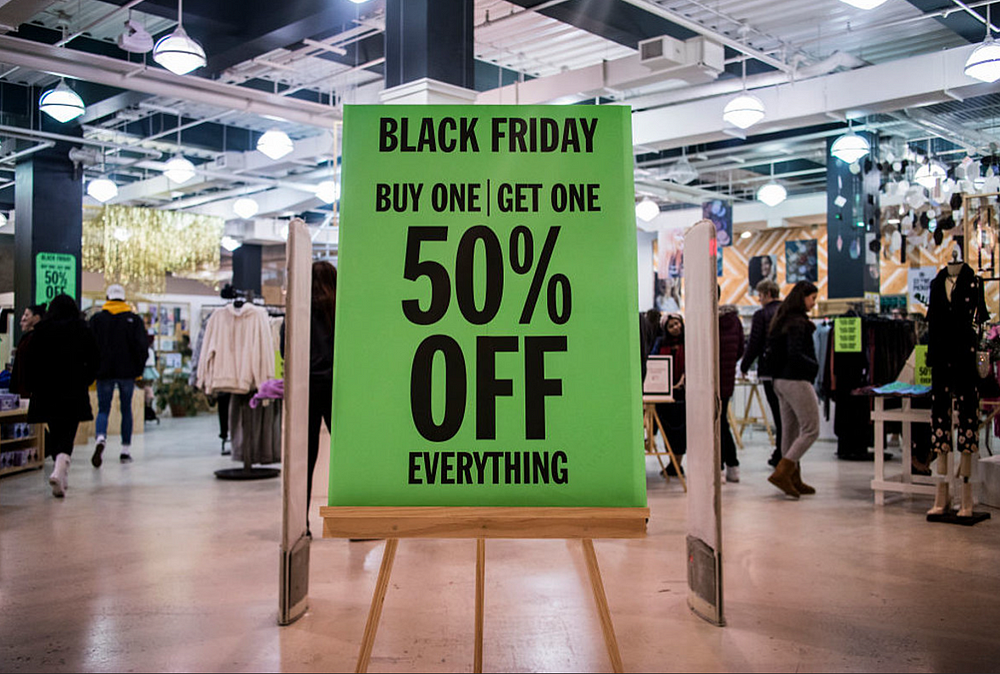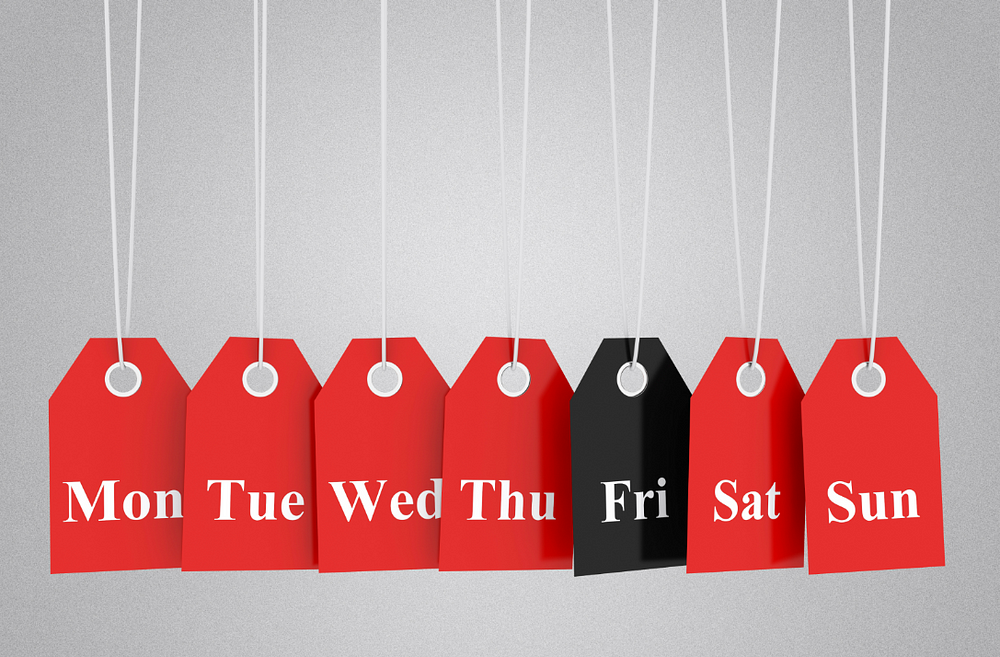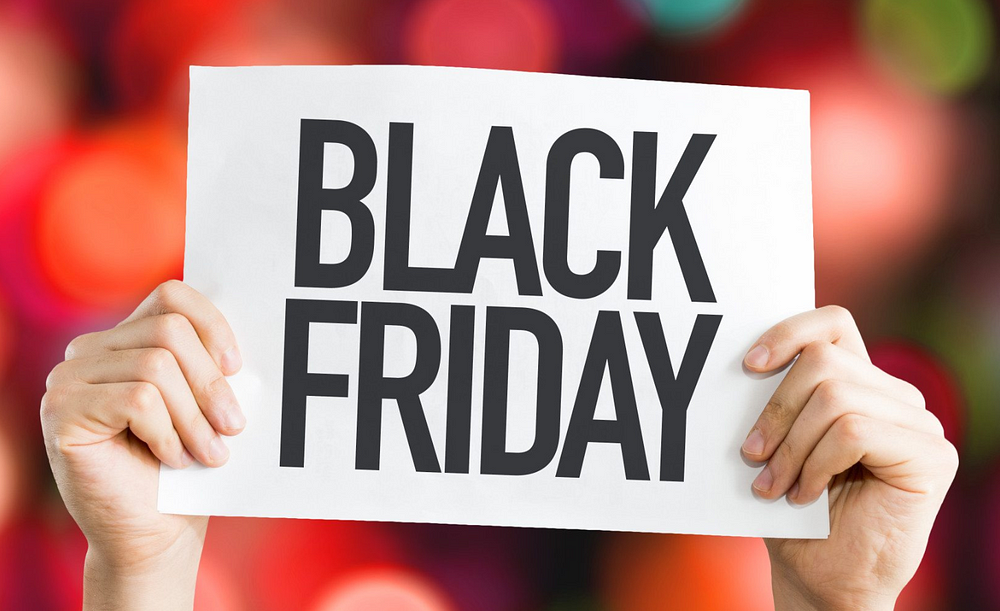Black Friday and Cyber Monday Deals
Everything Interesting You Need To Know About Cyber Monday and Black Friday

The Most Curious Things about Black Friday and Cyber Monday and their Origin
Black Friday and Cyber Monday Deals are the epitome of shopping extravaganzas.
These two days are the most awaited events for shoppers, retailers, and even the casual browser who can’t resist a good deal.
But have you ever wondered about the origins of these shopping holidays? Or what makes them so special?
In this comprehensive article, we’ll delve into everything you need to know about Black Friday and Cyber Monday, including some curious facts that will leave you amazed.
The Genesis of Black Friday
The term “Black Friday” was originally used to describe a financial crisis in 1869. However, its modern meaning is far from that.
The day after Thanksgiving, known as Black Friday, marks the beginning of the holiday shopping season. Retailers offer massive discounts, and consumers flock to stores to grab the best deals.
But did you know that the term was popularized by the Philadelphia Police Department in the 1960s?
They used it to describe the chaos that ensued as shoppers and tourists flooded the city before the Army-Navy football game held on the Saturday after Thanksgiving.
Curious Fact: The term “Black Friday” was not coined by retailers but by the police who had to manage the shopping frenzy. Source

The Rise of Cyber Monday
Cyber Monday is a more recent phenomenon, coined in 2005 by the National Retail Federation.
It was created to encourage people to shop online.
The Monday following Thanksgiving was chosen because people would return to their high-speed internet connections at work and shop online.
Curious Fact: In 2019, Cyber Monday broke online sales records with $9.4 billion in sales. Source
Black Friday vs Cyber Monday: What’s the Difference?
While both days offer incredible deals, there are some key differences.
Black Friday is known for big-ticket items like electronics and appliances, whereas Cyber Monday is popular for smaller items and impulse buys.
Curious Fact: Amazon sold over 18 million toys and 13 million fashion items on Black Friday and Cyber Monday in 2019. Source
How to Score the Best Deals
To make the most out of these shopping holidays, preparation is key.
Here are some tips:
- Bookmark Pages: Bookmark your favorite online stores and check for updates regularly.
- Use Browser Extensions: Tools like Honey and CamelCamelCamel can help you compare prices and find coupon codes.
- Sign Up for Newsletters: Many retailers offer exclusive deals to their email subscribers.
Curious Fact: 54% of US consumers plan to do most of their holiday shopping online this year. Source
The Role of 100.deals
If you’re looking for a platform that aggregates the best deals from various brands and companies, look no further than 100.deals.
The affiliate marketing website is your one-stop-shop for all things worth buying. Whether you’re searching for the best gift or a small gift for her, 100.deals has got you covered.

The Evolution of Black Friday and Cyber Monday Deals
The Rise of Online Shopping
The advent of the internet has significantly impacted the way we shop, especially during Black Friday and Cyber Monday.
While Black Friday was traditionally an in-store shopping event, the rise of e-commerce has blurred the lines between Black Friday and Cyber Monday. According to Reviewed, Cyber Monday was originally intended to promote online shopping with exclusive, website-only deals from popular retailers. However, deals are now comparable to both online and in-store discounts found on Black Friday.
Curious Fact: Did you know that Cyber Monday was coined in 2005 by Ellen Davis and Scott Silverman of the National Retail Federation? It was created to encourage people to shop online. Source
The Battle of the Titans: Amazon vs. Walmart (H3)
When it comes to Black Friday and Cyber Monday deals, two retail giants stand out: Amazon and Walmart.
Both companies offer some of the best deals on the web, especially during these shopping holidays. According to Country Living, Amazon is known for offering great deals on Black Friday and Cyber Monday, while Walmart also has its share of deals.
Curious Fact: Amazon’s Prime Day, usually held in July, is considered by some to rival Black Friday and Cyber Monday deals. Source
The Psychology of Shopping: Curiosity and Greed
The emotions of curiosity and greed often drive our shopping behaviors, especially during sales events like Black Friday and Cyber Monday.
Retailers tap into these emotions by offering “doorbuster” deals that are too good to pass up.
According to SEO insights, words that trigger curiosity include “deals,” “intel,” “offers,” “starts,” and “stops,” while words that trigger greed include “affordable,” “bargains,” “best-selling,” “discounted,” “discounts,” “gifts,” “huge,” “lowest prices,” “marked down,” “massive,” “news,” “receive,” “sales,” “savings,” and “specials.”
The Best Time to Buy Specific Items
If you’re looking for specific items, knowing when to shop can save you a lot of money.
According to Nationwide, Black Friday focuses on electronics, while Cyber Monday is a good day to buy apparel.
Curious Fact: Dishwashers and washing machines have some of the best deals on Black Friday, while clothes may have better deals closer to the end of December. Source
Internal Links:
- For those looking for a variety of gifts, Black Friday and Cyber Monday offer a plethora of options.
-
If you’re searching for a small gift, these shopping holidays are the perfect time to find one.

The Impact of Black Friday and Cyber Monday on the Economy
The Economic Boom: A Double-Edged Sword
Black Friday and Cyber Monday are not just shopping holidays; they are economic phenomena.
Retailers and e-commerce platforms like Amazon gear up for these events months in advance, stocking up on inventory and optimizing their marketing strategies.
In 2019, Cyber Monday broke online sales records with a staggering $9.4 billion in sales.
But what does this mean for the economy?
On the one hand, the surge in consumer spending boosts the economy. Retailers make a significant portion of their annual revenue during this period. On the other hand, the environmental cost of this consumerism is often overlooked.
The carbon footprint from shipping alone is enormous, not to mention the waste generated from packaging and discarded products.
The Role of Social Media in Amplifying Sales
Social media platforms have become indispensable tools for retailers to reach their target audience.
In the age of Instagram and Twitter, a well-placed ad or a viral post can make or break a Black Friday or Cyber Monday campaign.
According to data, 54% of US consumers plan to do most of their holiday shopping online. Social media not only helps in advertising but also in gathering data on consumer behavior, which is invaluable for retailers.

Tips for Smart Shopping: How to Get the Best Deals
Do Your Research
One of the most crucial tips for smart shopping is to do your research.
Just because an item is marked down doesn’t necessarily mean it’s a good deal. Compare prices across different platforms and read reviews.
Websites like 100.deals can be a great resource for this.
Use Technology to Your Advantage
There are several apps and browser extensions designed to help you find the best deals.
These tools can compare prices, track price drops, and even apply coupon codes automatically at checkout.
Be Skeptical but Buy When Comfortable
Sales seem to be retailers’ answer to a challenging retail landscape. However, not all that glitters is gold.
Be skeptical of deals that seem too good to be true and always read the fine print. But also, buy when you’re comfortable.
Discounts can be difficult to predict, and waiting for a better deal might leave you empty-handed.
Know Your Return Options
Always be aware of the return policies of the platforms you’re buying from. Most sellers offer returns within 30 days of delivery, but it’s always good to double-check.

Curious Facts about Black Friday and Cyber Monday
- The Term’s Dark Origins: The term “Black Friday” was initially associated with a stock market crash in 1869. Source
- Philadelphia’s Contribution: In the 1950s, Philadelphia police used the term “Black Friday” to describe the chaos that ensued the day after Thanksgiving. Source
- Average Spending: The average American spends around $335 on Thanksgiving weekend. Source
- TV Deals: Black Friday is unofficially the best day to buy a TV. Source
- Pepper Spray Incident: In 2011, a woman pepper-sprayed 20 people in a Walmart during Black Friday shopping. Source
- Boycott Movement: Some popular stores have started boycotting Black Friday. Source
- Broadband’s Role: Cyber Monday was a by-product of terrible early home broadband speeds. Source
- Mobile Shopping: In 2014, 42% of Cyber Monday sales were done from a smartphone or a tablet. Source
- Revenue Growth: In 2006, Cyber Monday generated sales of $610 million USD. Source
- Global Reach: Over 16 different countries have gotten in on the Cyber Monday action. Source
- Men Shop More: Men are the biggest Cyber Monday shoppers. Source
- Electronics Rule: Most people buy electronics on Cyber Monday. Source
- Plumbers’ Paradise: Black Friday is the busiest day for plumbers. Source
- Thanksgiving Rescheduling: Thanksgiving was rescheduled in 1939 to make Black Friday shopping more convenient. Source
- Accident Spike: Car accidents spike on Black Friday, especially in parking lots. Source
- Overseas Shoppers: Black Friday attracts shoppers from overseas. Source (no-follow)
- Gift Certificate Fiasco: A mall in California dropped gift certificates from the ceiling, resulting in injuries. Source
- Used Car Sales: Black Friday is one of the best days to buy a used car. Source
- Cards Against Humanity Stunt: One year, Cards Against Humanity offered customers the opportunity to pay $5 for nothing and received over 11,000 customers. Source
- Rising and Falling: While Black Friday sales numbers often fluctuate, Cyber Monday sales figures only ever rise. Source

The Future of Black Friday and Cyber Monday
The Evolution of Shopping Holidays
As we move further into the digital age, the way we approach Black Friday and Cyber Monday is bound to evolve.
With the rise of virtual reality and augmented reality, the shopping experience could become more immersive, allowing consumers to “try before they buy” from the comfort of their homes.
Additionally, as sustainability becomes a more pressing concern, we may see a shift towards more eco-friendly shopping practices.
The Ethical Considerations
While these shopping holidays bring joy and savings to many, they also raise ethical questions.
The environmental impact and the pressure on retail workers are issues that are increasingly being scrutinized.
As consumers, it’s essential to make responsible choices, not just in what we buy but also in how we buy it.

Final Thoughts
Black Friday and Cyber Monday have become much more than just days to get great deals. They are cultural phenomena that reflect broader economic, social, and technological trends.
As we look forward to future shopping holidays, it’s crucial to be mindful of their impact and to strive for a more sustainable and ethical approach to consumerism.
It’s (Black) Friday again…